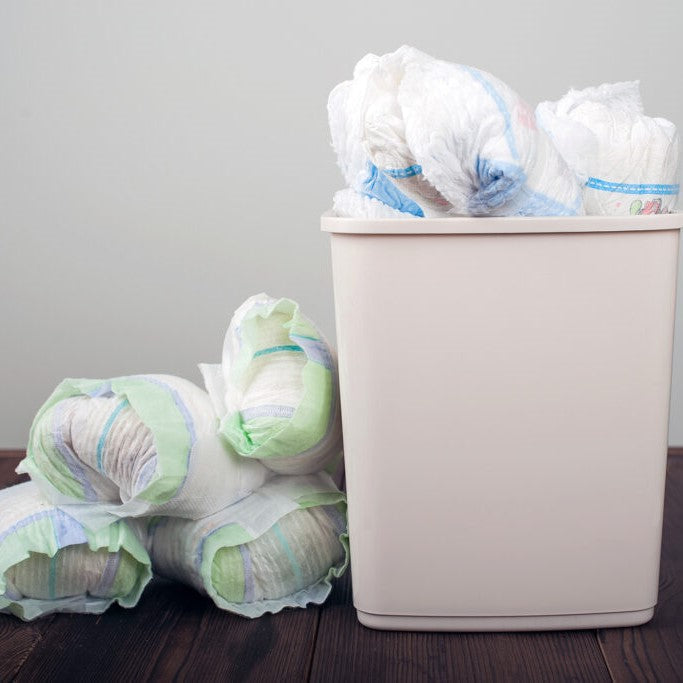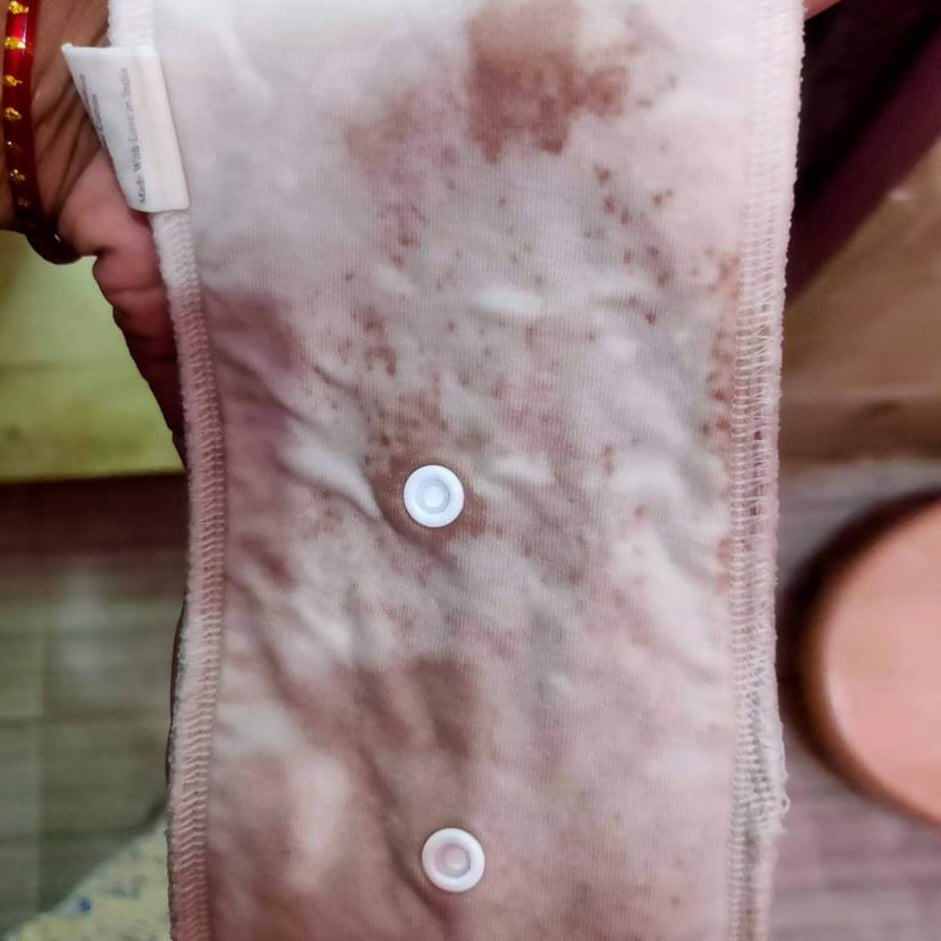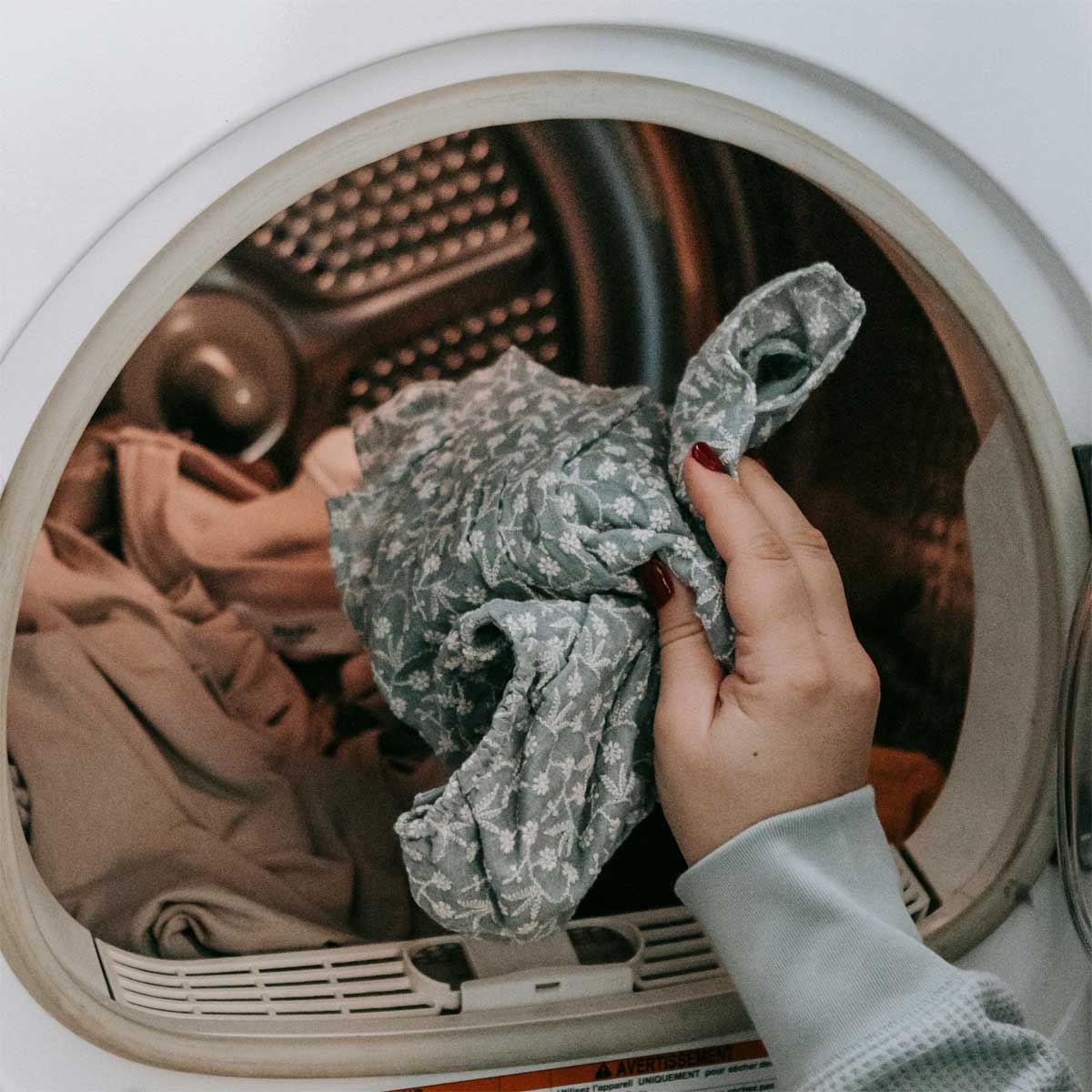
One important decision you have to make as a new parent is your baby’s diaper! When it comes to diapers, the new yet widely used disposable diaper has become the no.1 choice for everyone. Because it is convenient, has no cleaning hassle, and is highly sanitary is what you would think or might have heard! But have you ever heard that disposable diapers are safe? You would get only a vague answer. Although there are many pros, there are important cons of disposable diapers that you should know!
- What is in the disposable diapers?
- What are Phthalates?
- Types of Phthalates in disposable diapers.
- Health impacts of Phthalates on babies.
- Best alternatives you can find.
What are disposable diapers made of?

Disposable Diapers use special polymer materials including cellulose, polypropylene, polyester, super absorbent polymer (SAP: acrylonitrile), and polyethylene. And arranged in different layers (inner layer or top sheet, absorbent core, waterproof outer shell) to provide optimal absorption. You may not be familiar with most of these terms but read on to know what they are. All these components require, to put in simple terms “chemicals”, to hold your baby’s diaper together and make it work.
Even adhesives that you see in a diaper contain SES, SEBS, SEPS, and SIS. Though these adhesives do not directly harm a baby, it is dangerous to those involved in the manufacturing process. During the rubber processing, toxic chemicals that irritate upper respiratory ways are released. This shows how much chemical process a diaper goes through before it reaches you.
What are Phthalates?
Among polymers used in disposable diapers (SAP, polyethylene, polypropylene) Phthalates act as plasticizers and catalysts for the polymerization. Phthalates provide flexibility & durability to these polymers. And so they are used in manufacturing the diapers.
As a diaper is in direct contact with the external genitalia of infants and toddlers for several months to years, Phthalates can make their way into the body of babies by dermal absorption.
Types of Phthalates in diapers:
Various types of Phthalates are present in the disposable diaper. DBP, DEHP, DEP are present at very high levels. What are these and how much are they present in the diapers?
|
Phthalate |
Highest Levels |
Regulation |
|
DBP |
1609.7 ppb |
Banned in EU, South Korea, Japan, China. |
|
DEHP |
62.8 ppb |
Banned in EU, South Korea, Japan, China. |
|
DEP |
2.9 ppb |
Banned in EU, South Korea, Japan, China. |
Note: In India, no specific regulations are applicable on diapers which is very saddening!
Health Impacts of Phthalates on Babies:
DBP (Di-butyl phthalate) – Long-term exposure may cause liver and kidney damage (dcceew.gov.au). And it may also cause reproductive damage (nj.gov).
DEHP Bis(2-ethylexyl phthalates) – It may cause diabetes, insulin resistance and higher systolic blood pressure (ncbi.nlm.nih.gov).
DEP (Diethyl phthalate) – Repeated exposure may damage the nervous system (nj.gov).
There is enough evidence of the impact of Phthalates on human health. Toxicological & epidemiological studies have found that some phthalates have estrogenic and/or anti-androgenic properties that can lead to reproductive effects. Therefore Phthalates have been considered as endocrine disrupting chemicals (EDCs). Below are some of the health impacts caused due to prolonged exposure to phthalates in babies.
- Endocrine disruptor
- Liver/kidney/lung damage
- Cancer
- Altered reproductive development & male fertility issues
- Type II diabetes & obesity
- Attention-deficit/hyperactivity disorder (ADHD)
- Neurodevelopmental issues
- Increased allergic symptoms
- Metabolic disorders
- Autistic behaviors
- Lower cognitive and motor development
Key Takeaways:
Are Disposable diapers safe for babies?
- Disposable diapers are easy and convenient for new parents to use. But not safe for babies.
Why Disposable diapers are not safe?
- Scientific studies have found the presence of phthalates in diapers which are endocrine disruptors.
What are endocrine disruptors?
- Endocrine disruptors (ED) are chemicals that interfere with the hormonal system and as a result of that, produce harmful effects in humans.
Why are such dangerous toxins present in diapers?
- Use of phthalates in baby products including baby diapers is banned in EU, Japan, China, South Korea, and Indonesia. Unfortunately, India does not have such regulations for baby diapers. Hence these phthalates are freely used for polymerization in baby diapers.
Best Alternatives to Disposable diaper:
Unlike old times, modern cloth diapers have found a way to protect your baby against wetness. The best alternative you can find for disposable diapers is Cloth Diapers! Just Bumm Cloth Diapers are made of 100% Organic Cotton eliminating the chance of toxic chemicals or microplastics affecting your baby. Just Bumm Diapers are waterproof and have 360-degree dry feel protection. If your baby has sensitive skin, we have suitable products for them too. Kewt Langots and Fluffie to protect their delicate skin!
Disposable diapers may seem convenient and easy. However storing used diapers, and disposing of them in the open environment are all hazardous to human health. Also, we don’t have proper waste management in place. These diapers end up in landfills and stay there. With all the evidence, we can get a definitive answer which is disposable diapers are convenient but not safe for babies!
Related Posts you may like:
- 5 Reasons to Choose Cloth Diapers
- A Debunk of Cloth Diaper Myths
- Is Diaper free time necessary for babies?
Disclaimer: We do not own any information provided here. Visit toxicslink.org, ncbi.nlm.nih.gov, nj.gov, and dcceew.gov.au to read the full publication.



Leave a comment
All comments are moderated before being published.
This site is protected by hCaptcha and the hCaptcha Privacy Policy and Terms of Service apply.